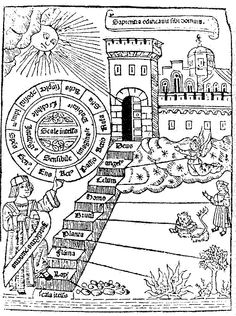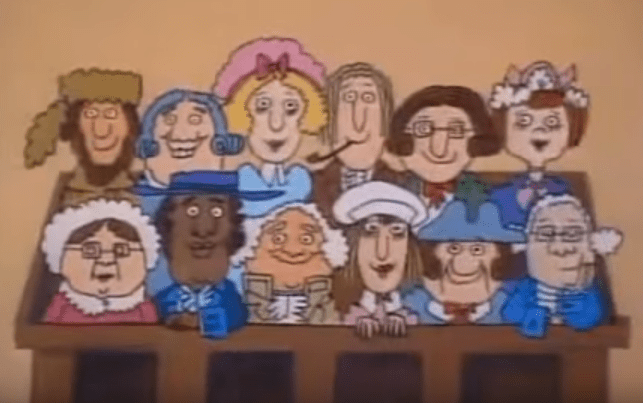Here’s where we left off yesterday on the subject of police and other first responders: “When one system collapses, another system is forced to bear the weight — putting an undue burden and undue strain on that other system. What we’re talking about here, then, is a failure of subsidiarity.”
Here’s Dallas Police Chief David Brown desperately trying to communicate what that means, specifically, for big city police departments in America:
We’re asking cops to do too much in this country. We are. We’re just asking us to do too much. Every societal failure, we put it off on the cops to solve. Not enough mental health funding? Let the cops handle it. Not enough drug addiction funding? Let’s give it to the cops. Here in Dallas we got a loose-dog problem. Let’s have the cops chase loose dogs. Schools fail? Give it to the cops. … That’s too much to ask. Policing was never meant to solve all those problems.
What Chief Brown is describing is what happens when subsidiarity breaks down.
I won’t try to provide some dictionary definition of what subsidiarity means — those tend to be more confusing than the idea itself, which is subtle, but not really all that complicated. The point is simply to acknowledge that we’re all connected to one another in all the various roles and spheres and responsibilities we have in life. If we each meet our responsibilities, we make it easier for others to do so as well. But when we fail to fulfill our responsibilities, we make it harder for others to fulfill theirs.

I’m not directly responsible for raising the kids next door. That’s primarily their parents’ job. But I am responsible for those kids, and for their parents, in indirect ways. I can be a good neighbor or a bad neighbor. Being a good neighbor makes those parents’ job easier. Being a lousy neighbor can make it harder. Those kids and their parents and I are all also connected as citizens of our township, our school district, our state and our nation. Again, I can choose to be a responsible citizen or an irresponsible one — and that choice affects my neighbors’ ability to do right by their kids.
This can be empowering — if we’re all connected, we’re all capable of indirectly assisting each other by sending out ripples of support. But it also reminds us that our irresponsibility can ripple forth, indirectly burdening and harming others as well.
What Chief Brown is describing is the end result of widespread irresponsibility creating a greater burden for police as the responsible actors of last resort. His complaint is echoed in similar complaints from other government agencies forced to take responsibility because no one else will.
Americans have been perversely confused on that point ever since President Reagan warned us that “government is the problem.” That ideology taught us to fear Big Gubmint expanding to usurp all the responsibilities that were rightly ours as sovereign, solipsistic individuals. This is backwards and upside-down. It’s like railing against orphanages for usurping the rightful role of parents.
Yes, that could happen. It’s possible that a community with a large, overpopulated orphanage got that way because Big Orphanage conspired to abduct children, murder their parents, and discourage all relatives, neighbors, church-groups and the like from acting as foster parents, all so they could consolidate ever-more power for their expanding Orphanage Leviathan. But it’s far more likely that a large, overpopulated orphanage is the result of abdication, not usurpation. It’s far more likely that it is a final, desperate act of last-resort responsibility overburdened by the failures and irresponsibility of multiple levels and layers of the community’s larger network of mutuality.
So, yes, it’s possible that — as Reaganite ideology tells us — Big Police has expanded to usurp the responsibilities of our mental health systems, and also that Big Police shouldered aside our wonderful drug addiction programs to take those over, further consolidating its power. And that now Big Police is even subsuming responsible pet ownership as it seeks to include loose-dog catching in the grasp of its totalitarian tentacles.
Chief Brown argues that the opposite is happening, and that seems far more plausible. Our mental health system — a network of mutuality unto itself including layers of government, insurers, regulators, employers, hospitals, the medical profession, etc. — has been irresponsible, he says, and so police departments either have the choice to join in that irresponsibility or else to be the last resort of responsibility, taking on a task they are ill-equipped and ill-prepared to perform. If the rest of society — the rest of the network of mutuality — refuses to fulfill its responsibility for the care of mental illness, then police departments will have to step up and do the best they can.
Will they handle that well? Of course not. It’s not supposed to be their job. And — like every job — it’s not something that anyone can do well when denied the direct and indirect support of the rest of the community.
The usurpation by Big Gubmint that Reagan imagined everywhere is always possible, and sometimes happens. But far, far, far more common is the situation Chief Brown describes: government forced to take on ever-greater responsibility due to the irresponsibility of other actors in our network of mutuality — individuals, corporations, families, economies, cities, towns, counties, states, schools, businesses, churches, etc. Government is far too burdened with the responsibilities abdicated by all those other actors to have much time or resources left over for the nefarious usurpation of even more responsibility.
But the top-down usurpation of Reagan’s nightmare is not entirely imaginary — as Chief Brown himself inadvertently acknowledged with his final example. I omitted that example with the ellipses in the quote above, but let’s look at it here. Here’s the chief’s full statement:
We’re asking cops to do too much in this country. We are. We’re just asking us to do too much. Every societal failure, we put it off on the cops to solve. Not enough mental health funding? Let the cops handle it. Not enough drug addiction funding? Let’s give it to the cops. Here in Dallas we got a loose-dog problem. Let’s have the cops chase loose dogs. Schools fail? Give it to the cops. 70% of the African American community is being raised by single women. Let’s give it to the cops to solve that as well. That’s too much to ask. Policing was never meant to solve all those problems.
The chief frets that “70% of the African American community is being raised by single women” and says this is a problem police departments are being asked to solve. That’s infuriatingly oblivious. This is not a problem police are being asked to solve, but a problem police are being asked to stop causing. The selective War on Drugs and the mass incarceration of black males in America are a huge contributing factor to the problem Chief Brown laments. Not to mention that the children of Eric Garner, Alton Sterling, Akai Gurley, Dante Parker, et al., are now being raised by single women.
Police are very often in exactly the position that Chief Brown argues — the overburdened and under-supported responsible actors of last resort who are forced to cope with problems the rest of society, at multiple levels, refuses to deal with. But they are also, like the rest of society, sometimes guilty of failing to meet their own direct responsibilities — thereby overburdening others in turn.













